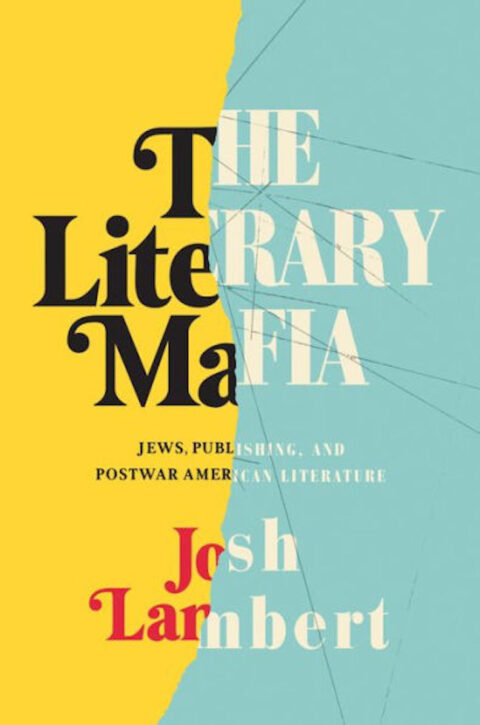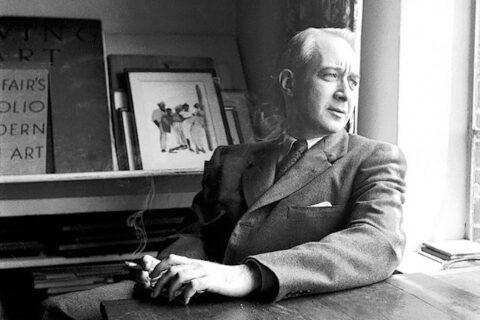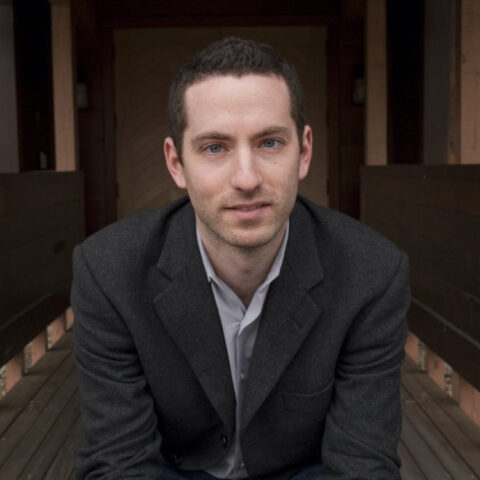For centuries, anti-Semites have claimed that an international Jewish conspiracy controls the world in its multifarious aspects. It is disappointing — if not entirely surprising — that several well-known mid-20th century American authors made similar claims. Jack Kerouac, Mario Puzo, Katherine Anne Porter, and Truman Capote are among the leading writers who alleged that a “Jewish literary mafia” controlled the publishing industry. This assumption is considered by Josh Lambert in his new book, The Literary Mafia: Jews, Publishing, and Postwar American Literature. In particular, Lambert takes issue with the critic and experimental writer Richard Kostelanetz (himself an American Jew) who, in his 1974 The End of Intelligent Writing: Literary Politics in America, accused the Jews not only of controlling the publishing industry but of excluding writers of other backgrounds and ethnicities.
 Lambert, who directs the Jewish Studies Program at Wellesley College, describes his book as a “work of literary studies more than a history of publishing per se.” Casual readers be warned: if you’re looking for a survey of 20th-century American Jewish literature, you won’t find it here. Other than brief references to writers like Norman Mailer, Philip Roth, Bernard Malamud, Cynthia Ozick, and a few other American Jewish authors whose work topped the mid-century best-seller lists, Lambert’s focus is on the editorial and business side of the publishing industry. Nor is this a history of Jewish influence on American culture, a la Irving Howe’s World of Our Fathers (1976) or Stephen Birmingham’s Our Crowd: The Great Jewish Families of New York (1967). Instead, it’s an overview of how Jews became leaders in the American publishing industry during the 20th-century, and a consideration of how certain relationships — professor-to-student, husband-to-wife, father-to-child — influenced professional decisions and career opportunities.
Lambert, who directs the Jewish Studies Program at Wellesley College, describes his book as a “work of literary studies more than a history of publishing per se.” Casual readers be warned: if you’re looking for a survey of 20th-century American Jewish literature, you won’t find it here. Other than brief references to writers like Norman Mailer, Philip Roth, Bernard Malamud, Cynthia Ozick, and a few other American Jewish authors whose work topped the mid-century best-seller lists, Lambert’s focus is on the editorial and business side of the publishing industry. Nor is this a history of Jewish influence on American culture, a la Irving Howe’s World of Our Fathers (1976) or Stephen Birmingham’s Our Crowd: The Great Jewish Families of New York (1967). Instead, it’s an overview of how Jews became leaders in the American publishing industry during the 20th-century, and a consideration of how certain relationships — professor-to-student, husband-to-wife, father-to-child — influenced professional decisions and career opportunities.
Lambert’s aim is to demonstrate “the ways that the relationships a major subset of U.S. literary professionals have had with people linked to them through kinship of one sort or another — in particular their landslayt, their students, their spouses and partners, and their children — influenced and conditioned their tastes, decision-making and creative expression.” (Landslayt is a Yiddish word for fellow Jews who come from the same district or town, usually in Eastern Europe.) He is most persuasive in his overview of the history of Jews in American publishing (a field from which they and other minorities were traditionally excluded by the WASP establishment) and the role of Jewish editors and publishers in supporting emerging writers of diverse ethnicities. This support of diverse voices is particularly important; as Lambert points out, “the only time that either of the two most respected national U.S. prizes for fiction, the Pulitzer or National Book Award, went to an African American novelist between the 1950s and the early 1980s was on an occasion when there happened to be a majority of Jews on the judging panel.”
Lambert “reject[s] simplistic complaints about a Jewish literature mafia in the U.S., [but]… also aim[s] to correct the accounts of the more numerous critics and literary professionals who assert or assume that U.S. literary culture functions as a meritocracy in which objective professionals, whose backgrounds make no difference in their decision-making, strive to ensure that the best, most excellent work flourishes.” In other words, while there’s no formal Jewish literary mafia, connections of culture and family do matter. The convolution of Lambert’s thesis statement underscores one of the problems with his book; in attempting to argue both sides of the question, his thesis becomes overly nuanced and he introduces too many examples that, while always interesting, serve to obscure his argument.
 [left: Lionel Trilling] Take, for example, his discussion of the distinguished Columbia professor Lionel Trilling, “(t)he key figure in a history of literary Jews at Columbia [University] … famously the first Jew tenured in the English department there.” Lambert’s description of how Trilling’s mentoring of several talented Jewish students includes several unsubstantiated assumptions about the scholar’s psychological mindset toward Judaism, but fails to consider whether or not he was equally supportive of talented gentile students. In addition, although Lambert writes about Trilling’s reluctance to admit to his Jewish background when he was a junior faculty member at the University of Wisconsin, he curiously does not recount the famous story about overt anti-Semitism when Trilling was hired at Columbia. The young Clifton Fadiman, who was also under consideration for a position at the university, was told by the chair of the English department that “we have room for only one Jew and we have chosen Mr. Trilling.” Lambert’s emphasis in The Literary Mafia is on Manhattan-based Jewish intellectuals; in his next book, he might want to consider the careers of ex-New York intellectuals such as Fadiman and Mortimer Adler, who decamped for the Midwest, where Fadiman became a popular radio and television personality known for introducing cultural ideas to middlebrow audiences, and Adler a founder of the Great Books Foundation, which brought access to the study of philosophy and other humanities to the middle class.
[left: Lionel Trilling] Take, for example, his discussion of the distinguished Columbia professor Lionel Trilling, “(t)he key figure in a history of literary Jews at Columbia [University] … famously the first Jew tenured in the English department there.” Lambert’s description of how Trilling’s mentoring of several talented Jewish students includes several unsubstantiated assumptions about the scholar’s psychological mindset toward Judaism, but fails to consider whether or not he was equally supportive of talented gentile students. In addition, although Lambert writes about Trilling’s reluctance to admit to his Jewish background when he was a junior faculty member at the University of Wisconsin, he curiously does not recount the famous story about overt anti-Semitism when Trilling was hired at Columbia. The young Clifton Fadiman, who was also under consideration for a position at the university, was told by the chair of the English department that “we have room for only one Jew and we have chosen Mr. Trilling.” Lambert’s emphasis in The Literary Mafia is on Manhattan-based Jewish intellectuals; in his next book, he might want to consider the careers of ex-New York intellectuals such as Fadiman and Mortimer Adler, who decamped for the Midwest, where Fadiman became a popular radio and television personality known for introducing cultural ideas to middlebrow audiences, and Adler a founder of the Great Books Foundation, which brought access to the study of philosophy and other humanities to the middle class.
 [left: Josh Lambert] Lambert observes that “[m]any of the most successful writers [of the late 19th-century and early 20th-century] — “and especially the most successful white, Protestant, male ones — had family members and ancestors whom they could look to as models … in the field of literature.” On the other hand, he points out, the breakthrough generation of Jews he is writing about often came from families in trade and commerce who were “at worst dismissive and uncomprehending of their literary aspirations and at best vaguely supportive without … being able to offer any concrete help, a model to emulate, or a leg up on the competition.” Lambert is being very selective here; his examples do not come from the bus-and-subway City College crowd. This selectivity brought to my mind a comment made by John Adams’s way back in 1780, that he himself “must study politics and war, that our sons may have liberty to study mathematics and philosophy so their sons can study poetry, painting, and music.” Perhaps the most appropriate response is, twas ever thus.
[left: Josh Lambert] Lambert observes that “[m]any of the most successful writers [of the late 19th-century and early 20th-century] — “and especially the most successful white, Protestant, male ones — had family members and ancestors whom they could look to as models … in the field of literature.” On the other hand, he points out, the breakthrough generation of Jews he is writing about often came from families in trade and commerce who were “at worst dismissive and uncomprehending of their literary aspirations and at best vaguely supportive without … being able to offer any concrete help, a model to emulate, or a leg up on the competition.” Lambert is being very selective here; his examples do not come from the bus-and-subway City College crowd. This selectivity brought to my mind a comment made by John Adams’s way back in 1780, that he himself “must study politics and war, that our sons may have liberty to study mathematics and philosophy so their sons can study poetry, painting, and music.” Perhaps the most appropriate response is, twas ever thus.
Certainly, there is far more to learn about the history and influence of Jews in American publishing than Lambert provides. That does not take away from the scope of Lambert’s effort. The Literary Mafia is not the definitive study of the history and place of American Jews in publishing, but it provides a worthwhile introduction to an often overlooked part of literary history.
[Published by Yale University Press on July 26, 2022, 272 pages, $35.00 US hardcover]